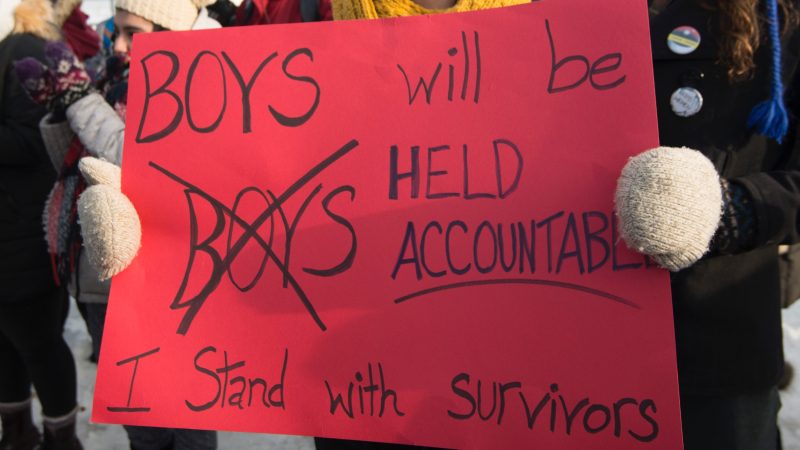“We need a criminal justice system that understands trauma, puts victims and survivors at its heart and is accountable,” says Rape Crisis England & Wales.

A charity has commended a report by Crown Prosecution Service (CPS) and police watchdogs about the low rate of rape prosecutions, saying that we need a criminal justice system that is “accountable”.
The joint investigation uncovered a cycle that led to increasingly lower prosecution rates.
It described a situation where low conviction rates resulted in rape investigations and prosecutions being handled more cautiously than investigations into other offences.
This led to delays and an increased focus on victim credibility – which in turn can result in victims withdrawing their support, leading to lower yet conviction rates.
The report recommended that police forces and the CPS should work together to build a seamless approach, instead of “pointing the finger” at each other for the failures.
Rape Crisis England & Wales, the umbrella organisation for Rape Crisis Centres across both countries, said: “We could not agree more that both police and the Crown Prosecution Service must begin to take responsibility for their own roles in the catastrophic failure of criminal justice for victims and survivors of sexual offences if we stand a chance of successfully tackling this unacceptable and urgent situation, and achieving the systemic and cultural change so evidently needed.
“We need a criminal justice system that understands trauma, puts victims and survivors at its heart and is accountable.”
From April 2019 to March 2020, 58,856 cases of rape were recorded by the police in England and Wales.
These led to 2,102 prosecutions – just 3.5% of the number of cases reported. This number fell from 3,043 prosecutions in the year before.
The report also advised police forces to record information on the protected characteristics of victims and work with local support services to provide bespoke, wrap-around support for victims at every stage.
Rape Crisis endorsed the recommendations, saying: “In particular, we welcome the recognition that police should work with local specialist support services to ensure all rape victims have access to bespoke, high quality and consistent wraparound care.
“This includes the specialist advocacy that Rape Crisis Centres provide but also, crucially, the emotional support and counselling they offer, to enable survivors to cope, recover and move forward positively from the trauma of sexual violence.”
They also support the recommendation that police begin recording the protected characteristics of victims immediately.
This is so they can better understand and address the additional barriers to justice some survivors, like Black and minoritised women, face.
Alongside the report, an evaluation of rape survivors’ experience with the police and other criminal justice agencies was released.
One woman told the authors that after she reported an incident, she had expected to be treated with care, referred to support services and for a thorough investigation to be undertaken.
None of these things happened.
She said: “It re-traumatised me. Telling someone whose job it is to protect you about this awful thing that happened to you only for them to dismiss it like it’s nothing.
“Before I reported, I conned myself into thinking there would be some sense of justice. I didn’t really know what that meant, but to be believed, heard.
“Now, I am so aware of how unsafe I am. If someone was to rape me in the street, they can because I won’t call the police.
“There’s something very sobering about going through something as traumatic as sexual assault and violence, going through the police, and realising that there is no-one there to protect you”
Another woman recounted how she waited two years for the CPS to make a decision if they would charge or not.
During this time, the perpetrator repeatedly broke their bail conditions by driving past the woman’s house.
She said: ““Every week I contacted the police to ask if the CPS decision had been made – for two years. Every time I would be told, ‘No not yet, but we’ll email them.’
“It put my life on hold, I couldn’t move on. I felt like I was the one in prison. I felt very unsafe.”
The findings are from phase one of the joint inspection, which focused on the period between the victim first reporting the rape and the police or CPS deciding to take no further action.
The second phase will be published later in the year and will look at the period between a reported rape resulting in a charge and the case going to court, including the outcome.
Alexandra Warren is a freelance journalist.
To reach hundreds of thousands of new readers we need to grow our donor base substantially.
That's why in 2024, we are seeking to generate 150 additional regular donors to support Left Foot Forward's work.
We still need another 117 people to donate to hit the target. You can help. Donate today.



